Young heroes stood little chance against thousands of jihadists
The IDF has cultivated – and Israelis have willingly absorbed – the image of an impenetrable military force brimming with daring commandos and career soldiers who munch on glass for breakfast and never falter on the battlefield. October 7 told a different story.
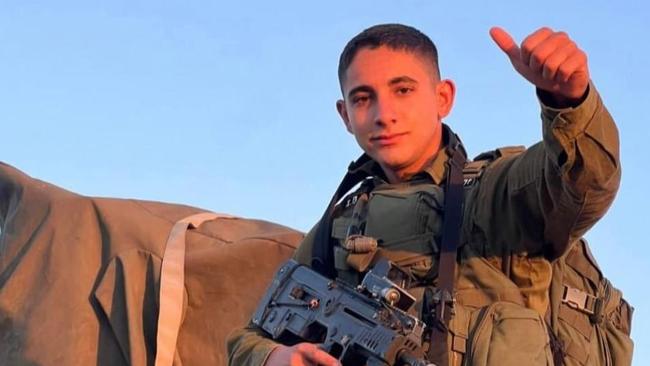
Come back with me to October 7 and hear the voice of a 19-year-old corporal in the Israeli army.
His name is Re’em Batito.
He is technically a soldier, in the sense that he’s wearing the uniform of the world’s most storied military, the Israel Defence Forces.
But like many of Israel’s conscripted soldiers, Batito is fresh out of school and has a TikTok account and is completing his three years of national service before the rest of his life can truly begin.
He’s on a military base near the border with Gaza, and what should have been a sleepy Saturday has descended into a terrifying ambush by hundreds of jihadi fighters – a battle that Batito is staving off but knows his side is losing.
The base has been overrun, just as quiet farming villages such as Kfar Aza and Be’eri are about to be overrun – by men with GoPro cameras set to record their slaughter of children, grandmothers and old men sitting in their lounge rooms.
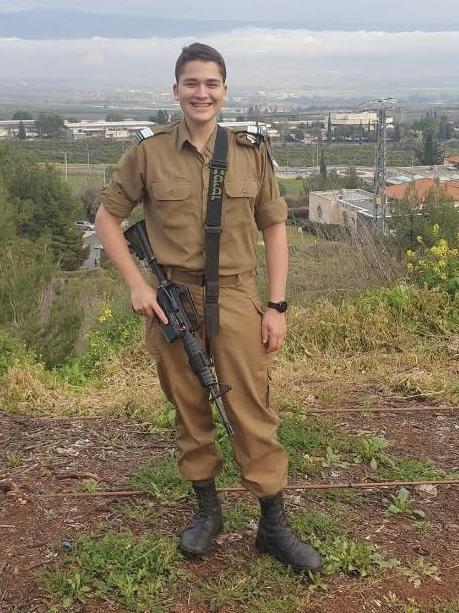
Batito’s one powerful instinct in this moment is to call his mother. She’s hours away from the dust and heat of the south, answering his call from the family home in the northern coastal city of Netanya. “Where are you?” she asks.
“I came back to the base.”
“Are there many other soldiers with you?”
“Whoever is left,” he says, voice quivering down the line.
Hundreds more terrorists are approaching, he says, bursting into sobs, all of them heavily armed with the special forces.
“Listen, Re’em,” his mum says forcefully. “You have to pull yourself together. You’re going to breathe, and you’re going to fight back. I’m with you, I’m counting on you.”
Batito is young and inexperienced, but he knows that he’s doomed. There will be a call to his brother in The Netherlands. He’ll ask his mum to put him on speakerphone to say goodbye to his grandparents.
“I just wanted to tell you that I love you,” he says, “and if anything should happen … (recording ends)”
Mourners gathered in the centre of Israel four days later to bid farewell to Batito at his funeral, that phone call now a fragment of the oral history telling the story of an Israeli catastrophe – from the poorly manned bases to the absence of the IDF leadership, to the slow response time, the breaching of safe rooms, the wretchedness of the massacre sites and the soldiers who fought for days to liberate communities taken hostage on October 7.
Batito’s account is one of many that captures the vulnerability, the tenderness, of the young men whose job it is to fortify Israel’s defensive positions.
In another, 19-year-old Ido Binanstock recorded a voice note to friends on a WhatsApp group as the fighting closed in around him.
Israelis weren’t moved just by Binanstock’s words but by his incredible composure under fire, the microphone picking up several unsettling blasts as he says goodbye to his mates.
“I love you, guys,” he says. “Thank you for everything you meant to me. I’ll never forget it.”
The IDF has cultivated – and Israelis have willingly absorbed – the image of an impenetrable military force brimming with daring commandos and career soldiers who munch on glass for breakfast and never falter on the battlefield.
October 7 told a different story, exposing a frontline of green but very brave young men and women who were honouring their compact with the state – to complete up to three years of national service – that forms the bedrock of Israeli civil life.
The daring commandos were not on the southern bases. The generals weren’t ready for a Hamas attack. As Batito and Binanstock fought off the onslaught, the legendary IDF found itself sitting in troop transports, in traffic, scrambling to get its tanks and weaponry to the battlefront while there was still a war to fight.
Bereft of a functional leadership that day, these youngsters came up against an army of well-trained and heavily armed jihadists who spilled across the border by the thousands. They might have briefly controlled a mere slice of southern Israel, but the effect might as well have been an infiltration of every household in the country.
Hour after hour, Israelis watched helplessly as people in shelters phoned television news stations and were put live on air, pleading in whispers for the army, begging for someone to send forces to the village where a parent had been killed or a brother had been taken hostage.
“I know my father has been kidnapped,” said Ella Ben-Ami, who called the Channel 12 news station after seeing a photograph of her dad being marched from his house by armed men in the village of Nahal Oz. “No one is telling us what’s going on. I don’t know if my mother is alive.”
Amid the breakdown of order were acts of extraordinary valour.
By now, everyone in Israel has heard the story of retired major general Noam Tibon, a 61-year-old grandfather who led a small team of soldiers to rescue his son’s family.
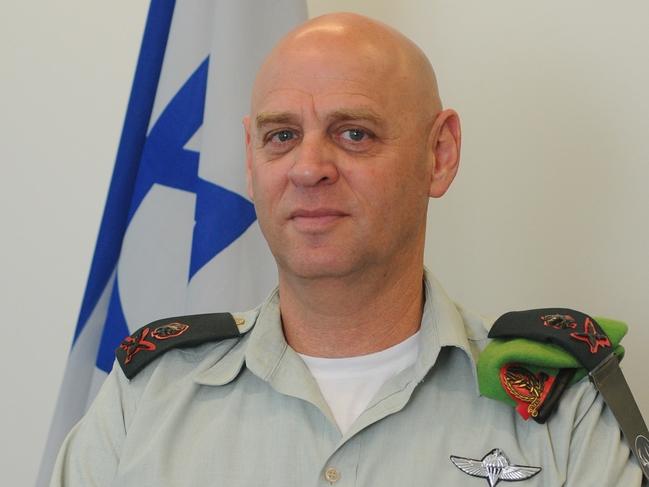
In scenes that could have been lifted off the pages of a script for the hit Israeli television thriller Fauda, Tibon and the men fought their way inside Nahal Oz and moved house by house to neutralise the terrorists, saving his grandchildren and many others in the process.
And what about Yair Golan? The left-wing politician now has also been burnished as a national hero. As news of the attacks broke, he grabbed a pistol, some boots, a vest and drove in the direction of the Supernova music festival to extract any survivors, bypassing checkpoints in his Toyota Yaris and tearing through open fields.
Familiar with the terrain from his years as a military commander, the 61-year-old returned several times into the line of gunfire to whisk away any victims he could find as ravers and their family members sent pin-drop locations to Golan via WhatsApp.
“It’s an area I know intimately,” he said later. “I don’t need to navigate there with a map, and where I saw that it was OK to enter – where there was a certain, but not hysterical, risk involved – I went in and made my modest contribution.”
Multitudes of young men still in their prime defied the checkpoint instructions in the same way, venturing on instinct to help people, but they didn’t make it back alive. Their stories are still emerging.
But in the chaos of that morning, when information was scarce, and when no one from the political establishment would appear on television to explain what was going on, the only point of view available was of those calling into news stations. It soon would dawn on everybody that the concept of safety and security in the Jewish state had only ever been fantasy.
As celebrated Israeli fiction writer Etgar Keret put it, the country watched on helplessly as stories continued to emerge from people cowering in their safe rooms. That was all anyone knew for many hours.
It felt like everyone in Israel, he said, was locked in with them.
It has been two months and Israelis are still trying to find a pathway through the pall of fear created by October 7, when men rashly shipped their families off to Europe and gun licence applications surged by an order of magnitude.
Everyone still wonders about precision-guided missiles being launched by Hezbollah, north of the border, but concerns of an uprising in the West Bank are no longer at the front of mind, and neither are the notions of a civil conflict with residents of Israeli-Arab villages.
Across the farming communities of the Sharon plain, boom gates that once served as ornamentation suddenly barred the smooth flow of vehicles. Sentries appeared, along with concrete pylons designed for taking cover in the event of a shooting.
It hardly quelled anyone’s anxiety when the government advised everyone to stock up on three days’ worth of food and to prepare for lengthy stints in the bomb shelters – the coded language for a war with southern Lebanon. The irony, of course, is that Israel still feels like the safest place in the world to be a Jew.
The man wearing a yarmulke on the streets of London is no longer safe from being accosted, with confrontations verging on likelihood. The Jewish-owned business in Paris or Sydney’s Surry Hills stands at risk of being daubed in red paint – again. Students at Ivy League schools in the US are routinely harangued by their classmates, while posters of abducted children, stuck to lampposts in Berlin and Bondi Beach, are being defaced by frustrated academics and their credulous students.
The hostages’ plight is an open wound for Israeli society. Because of the taking of captives, the effect of October 7 is stretched out across days – it’s a terrorist attack that hasn’t stopped. The grief seems to compound with every day they remain in captivity, their faces invoking pulses of anguish for anyone who chances to pass by and glance at their posters.
Their rescue is one of two stated objectives of Israel’s war with Hamas. The other, of course, is to eliminate the group entirely, an ambition that has seen wavering levels of international support on account of the reported civilian casualties. But while global backing for Israel’s war is faltering, internally it’s difficult to find anyone who isn’t supportive of the notion that Hamas has forfeited its right to exist.
Hence the joke being shared on Israeli social media, told by beloved comedian Adir Miller:
A guy promises his wife to be home by 4pm because she needs to go out and do something important. But he completely forgets the arrangement and ends up hanging out with a friend drinking coffee at a cafe.
At 4.15pm, his phone rings and the wife is in a fury. “You’re drinking coffee? What coffee?” she shouts. “You said you’d be home at 4pm!”
Miller asks the audience how they would handle this disaster. Someone suggests apologising and rushing home immediately. “Mistake,” he says. “She’s already angry. The anger can’t be undone; at least finish the coffee.”
Israel, of course, is the guy in the cafe; his angry wife is the rest of the world – and if the world’s already furious, scrambling to leave the cafe is futile. Better off staying to see the war through. “Finish the coffee,” Miller says, to applause from the audience.
But of all the uncertainties created by this conflict, the most pressing is how long the expense of war can be sustained. The shekel has dropped since October and the cost of living is already too high.
Reservists are being paid salaries to stay on the frontlines in Gaza, but their absence from the workforce has created a labour shortage. It means that businesses are only half-operating through the week and supply chains have slowed. There’s less money flowing through the economy and the inevitable consequence has seen workers laid off or being asked to take unpaid leave.
A waiter at the famed Uri Buri restaurant in Acre, in Israel’s far north, tells me that 90 per cent of the staff are gone; the venue’s owner is basically keeping the place running just to support his staff.
Then there are the legions of displaced residents who’ve left their homes in the north and south, now reliant on government aid. Entire towns have been emptied, their people living in hotels alongside survivors of the kibbutz massacres. All of them are entitled to and receiving government stipends.
If their safety can’t be guaranteed, who’s to say when they’ll return to their border-town communities?
“The future will be different,” said Colonel Elad Goren, the person in charge of delivering humanitarian aid to the Palestinian territories. “The people of the Gaza envelope (the border towns) will not return to their places if they know that on the other side of the fence Hamas is still alive and still controls.”
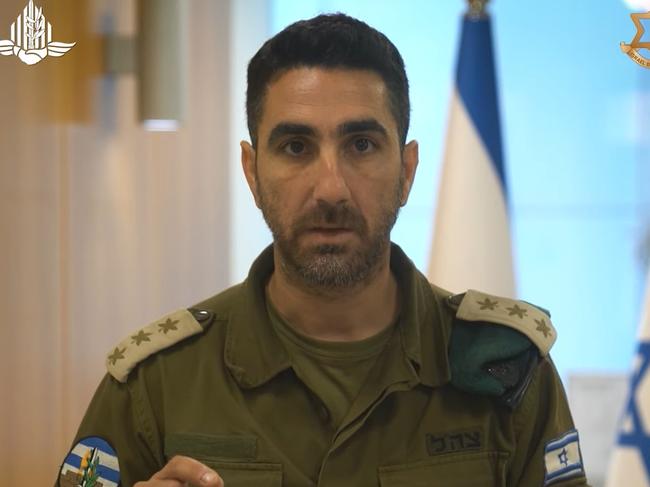
What it suggests is that a failure to neuter Hamas in Gaza, or to push Hezbollah back from the Lebanese border, is likely to entrain a series of unpleasant demographic consequences for Israel.
Chen Mahlof, a resident of Ashkelon, is happy to stay put for the moment, she says, despite the daily barrage of rocket fire sending her to the bomb shelter. A close friend recently told her that if the southern villages stayed empty he would have to move away from the city farther north.
She couldn’t understand what he meant until he explained that if people didn’t return to their homes in Sderot and Zikim and elsewhere, then Ashkelon would become the first stop for a terrorist attempting the next infiltration.
“I don’t want to be the first line of defence,” he said.
But arguably the most pressing question of all is: Who stands to govern the Gaza Strip if Hamas is eliminated in its entirety?
There are many views on the subject, but it sort of depends on Israel’s own political future, and there are few scenarios that exist in which Benjamin Netanyahu’s leadership can survive once the war is over.
The Israeli Prime Minister is resistant to accepting responsibility for October 7 and was deeply unpopular before then anyway, and even a sweeping success in Gaza wouldn’t confer much hope of keeping him in power, one former Israeli diplomat says.
And what if the army somehow rescues every last hostage from Gaza? And what if the IDF captures Hamas leader Yahya Sinwar and his crony Mohammed Deif to put them on trial? And what if the war ends with the total annihilation of Hamas and a semblance of security restored, and without another splendid young guy like Batito or Binanstock losing their life in the process?
The old diplomat laughs off the question.
“Even if some Marvel superhero thing happens,” he says, “who says Netanyahu gets the credit for that?”


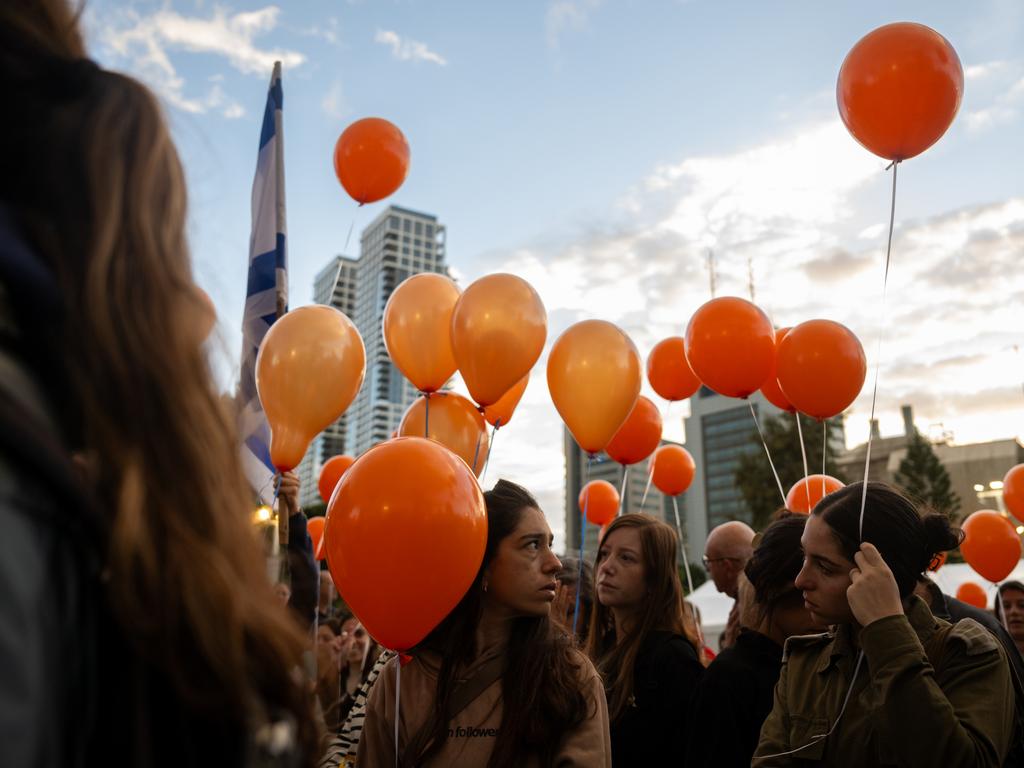

To join the conversation, please log in. Don't have an account? Register
Join the conversation, you are commenting as Logout